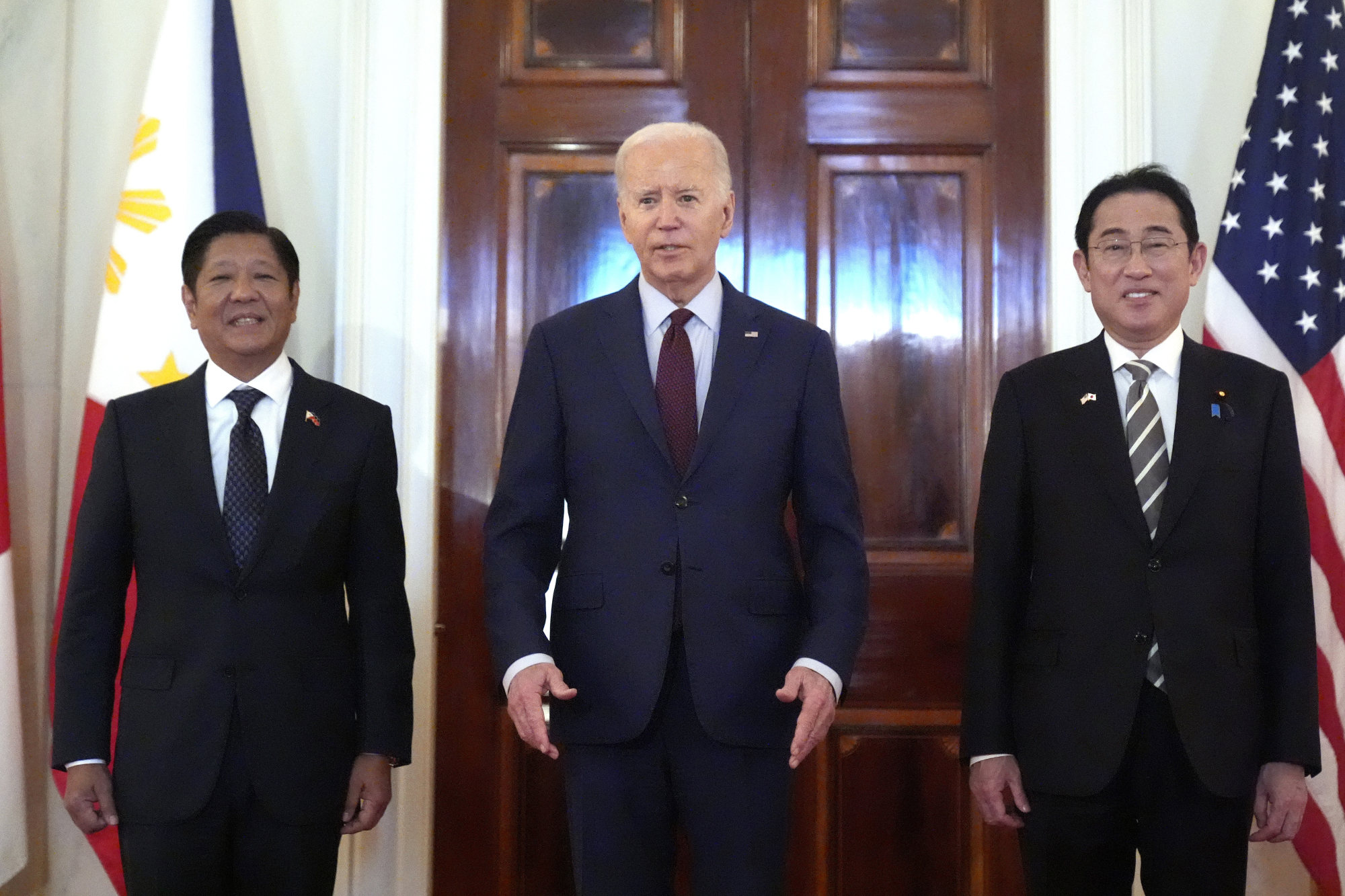The first cohort of a new tech cooperation fellowship involving the US, Japan and South Korea has arrived in Washington to a warm welcome, amid mounting concern over the mismanagement of emerging technologies and pressure to counter China’s technological advancement.
The Trilateral Technology Leaders Training Programme, announced last year at a special three-way summit at Camp David in Maryland, features 30 mid-career government officials from the three countries.
Speaking on Monday at the Johns Hopkins School of Advanced International Studies – one of the initiative’s hosts alongside the Seoul-based Chey Institute for Advanced Studies – US deputy secretary of state Kurt Campbell invoked the historic summit in opening remarks to the gathered fellows.
“Over a two and a half day period I had to pinch myself at how exciting it was to see bonds being created before my eyes, a potential for a new kind of relationship that would change the contours, not just of Asia but the world,” he said.
Campbell also emphasised the critical need for public officials to understand how technology works. “Technology is at the core of what each of our governments seek to do.
“Every week I’m in a meeting with senior people making decisions about technologies they neither understand [nor] really could identify. And so we don’t want that to be the case for your generation,” he said to the fellows.
In recent years, rifts between the countries have gradually eased. Last March, Japan agreed to loosen restrictions on chip material exports to South Korea ahead of a bilateral summit in May of that year.
The tech training programme is only one of several trilateral initiatives that arose from Camp David. Others include a cancer dialogue, youth summit, early-warning system for supply-chain disruptions and a maritime mechanism to synchronise capacity building in Southeast Asia and Pacific Island countries.
Over a three-week period, participants of the tech leaders programme will delve into themes shaping the governance of emerging technologies, including semiconductors, AI, quantum technology, biotechnology, cybersecurity and space exploration.
Sessions will be led by Johns Hopkins faculty as well as members of the policy and tech communities, with the first two weeks of programming held in the US capital and the final week in Silicon Valley, California.
The programme’s founding sponsors include Google and Tokyo-based NEC Corporation.
“Bringing together public policy officials from three major trans-Pacific, like-minded countries … to learn, discuss, collaborate and cooperate on the social implementation and governance of advanced technologies is significant,” said Shigehiro Tanaka of the NEC Corporation in a statement.
In recent years, the Joe Biden administration has increasingly used “mini-laterals” to make diplomatic headway in the Indo-Pacific. Apart from last year’s Camp David summit, the US hosted its first trilateral with the leaders of Japan and the Philippines in April.

Last week, Japan’s ambassador to the US, Shigeo Yamada, said that the biggest benefit of mini-laterals was that they enabled a focus on strategic issues.
“When we meet bilaterally, we tend to talk about bilateral issues: economic issues, development assistance and so forth. But when we have other partners in the room, we don’t talk about those bilateral issues, but focus on strategic issues,” he said in remarks at the Washington-based Centre for a New American Security.
At a meeting with his Japanese and Korean counterparts in Virginia in May, Campbell said another leaders’ summit between the three countries was a “high priority for the remainder of the year”.
China, Japan and South Korea have convened their own trilateral leader-level summit, which most recently took place last month, resuming after a four-year pause.

